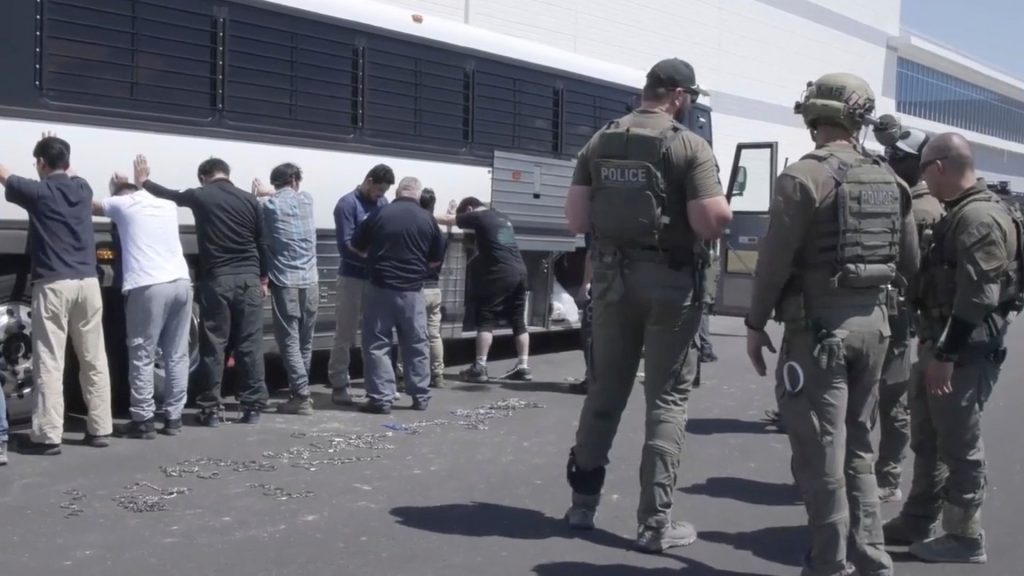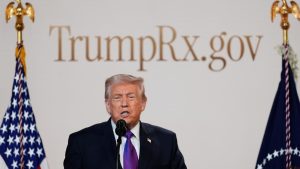Two types of visas that didn’t keep South Korean Hyundai workers out of jail

Hundreds of South Koreans remain in detention following an immigration raid at a Hyundai manufacturing plant in Georgia. But how did those workers, employed to help build an economic boon for the state, end up in the custody of immigration enforcement officials?
What brought the workers here?
The Sept. 4 raid on Hyundai’s battery plant ended with 475 workers in handcuffs, more than 300 of them being South Korean.
This all began back in 2022 when Hyundai, a South Korean company, announced plans to build a $5.5 billion electric vehicle plant in Georgia. LG, also a South Korean company, announced one year later that it would also invest billions to build electric batteries.
That’s where the South Korean workers come in.
“These individuals weren’t hired to do the work of Americans,” Charles Kuck, an attorney representing more than a dozen of the detained workers, told Straight Arrow News. “These individuals were brought over from abroad, from their current positions abroad, to install products and oversee the internal building of the plant that will then create jobs for Americans. So, these people weren’t doing jobs Americans can do.”
President Donald Trump said these workers were in the country illegally and that the U.S. needs arrangements with countries like South Korea to train U.S. citizens to do this work.
Kuck argued that’s not a good model for these South Korean companies.
“They could technically train Americans to do this, but it takes around three to five years to be properly trained before an individual will be authorized to engage in this work,” Kuck said. “So, Hyundai could say, ‘Great, we will train your Americans for three to five years, and then we’ll bring them over to install the plant and then hire the rest of the workers in four years. Or we can bring our guys under this visa, which is perfectly allowed, been around since at least 1990 and get it done quickly, and then you can hire U.S. workers quickly.’”
What kind of visas did the workers have?
Kuck said his clients were all on either ESTA B visas or on a B-1 visa.
ESTA visas allow people from countries under the Visa Waiver Program, like South Korea, to come to the U.S. for up to 90 days for business or tourism without applying for a visa. A B-1 visa is roughly the same, but for people from countries not on the Visa Waiver program.
“There are only a very few kinds of work visas available,” Rajiv Khanna, an immigration lawyer, told Straight Arrow News. “H-1B is for professionals, and that is a lottery that is conducted only once a year, and you have far less than 50% chance of winning the lottery. H-2B has to go through a whole set of legal procedures that can take months to process. B1, B2, these are tourists-slash-business visas that are not really typically for working in the United States.”
That leaves businesses like Hyundai with limited options when they want to bring in their own workers.
“This was and is the correct visa for these individuals to do exactly what they were doing inside the United States,” Kuck said.
Kuck argues it was really Hyundai’s only choice to get this done.
“In order to build the plant, Hyundai needs specific equipment,” Kuck said. “I can tell you that that equipment is not made in the United States. Otherwise, they would buy it from here. There’s no reason to pay import taxes and bring people over. So, their only choice if they wanted to build this plant at the behest of the state of Georgia, for example, would be to bring in these workers and this equipment from abroad.”
Hyundai also did not directly hire the workers.
“These workers were hired by labor contractors that were then secured by Hyundai, and I assume that it may be a preference for people with a knowledge of the products, a knowledge of the Korean language, and a knowledge of how a Korean company operates,” Kevin Johnson, a law professor at UC Davis, told Straight Arrow News.
What happens next?
Several reports have said South Korea is now working on chartering a plane to get these detained workers out of a south Georgia jail and home to South Korea.
“Ordinarily, you don’t have a government intervening, saying we’ll bring our citizens home,” Johnson said. “So, this is kind of extraordinary [in] certain kinds of ways, but it is consistent with the Trump administration’s stated effort to enforce the law when it comes to workplaces.”
Hyundai has not publicly commented on the raid or what will happen next at the plant.
“The United States has been soliciting investment in this country to help the nation’s economy,” Johnson said. “And Hyundai was attracted here through the previous administration to invest in Georgia to create a manufacturing plant there, and there’s economic benefits to the United States by attracting foreign investment, like jobs for U.S. workers.”
Immigration enforcement
Arresting hundreds of Korean workers was not the government’s plan going into this raid. The warrant allowing the raid shows they were targeting four Latino workers.
“They didn’t know Koreans were there,” Kuck said. “That’s evident by the fact that they didn’t bring any Korean interpreters with them and were only prepared to arrest around 200 Latino workers. So, this was a decision, apparently made on the spot, to instead of vet each person individually and verify whether they were properly on a visa and properly performing the duties in their position, simply arrest each person and sort it out later.”
At least one person detained in the raid has a criminal history, but none of the others have a reported record at this point.
“This administration came in saying that they were looking for criminal aliens, criminal noncitizens, which does not seem to be the case any longer. It looks like they have established a quota, and it doesn’t matter who they catch in the quota net,” Khanna said.
Homeland Security Secretary Kristi Noem said this is Trump sending a message to other countries to employ workers legally, and she doesn’t think this raid will deter foreign investment.
“We’re encouraging all companies who want to come to the United States and help our economy and employ people, that we encourage them to employ U.S. citizens and to bring people to our country that want to follow our laws and work here the right way,” Noem told several media outlets, including The Associated Press.
Data from the Department of Homeland Security shows Asians have not been targeted as much as South Americans when it comes to immigration enforcement.
“It’s different, for example, than the cases in Southern California where [ICE] is going into car washes and rounding people up, primarily Latinos, for possible removal, or going to day labor pickup points in Home Depot parking lots, something like that,” Johnson said. “So it’s different, but it is consistent with the Trump administration’s stated commitment to enforce the immigration laws.”
It also involves an important U.S. ally in South Korea.
“[South Korea] is very integral to U.S. efforts to navigate the difficult challenges faced in Asia, involving China and other nations,” Johnson said.
The post Two types of visas that didn’t keep South Korean Hyundai workers out of jail appeared first on Straight Arrow News.





